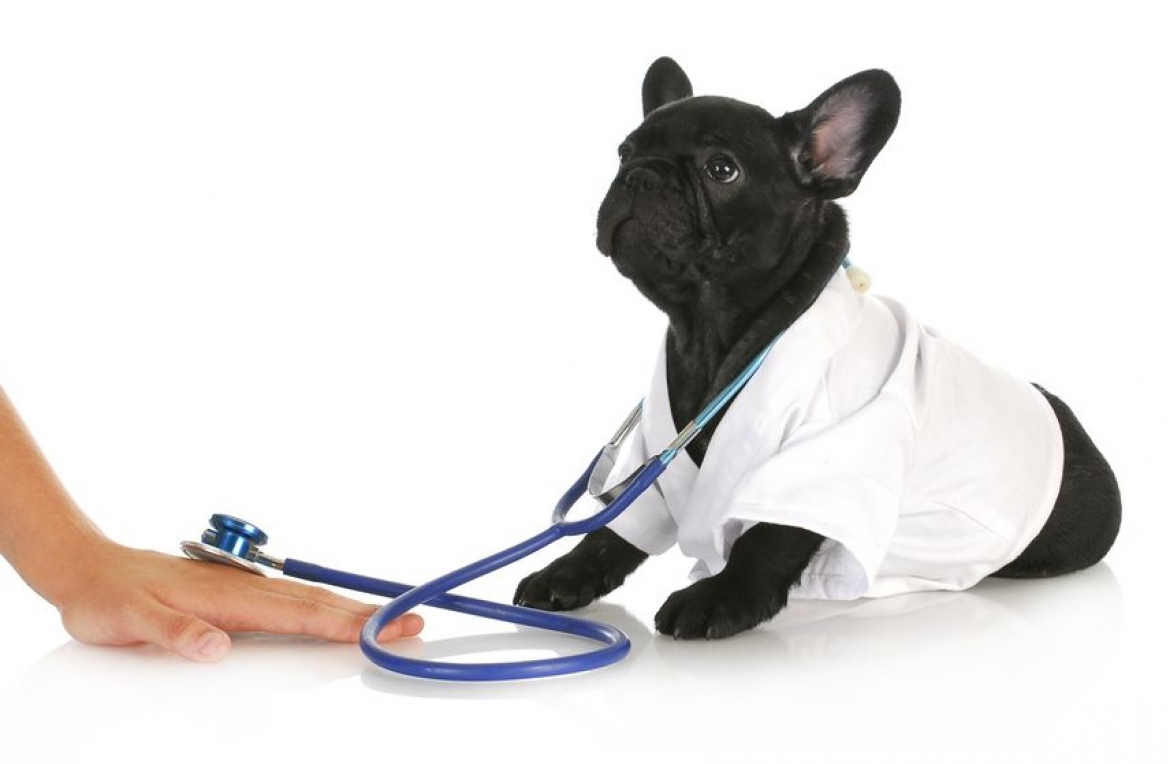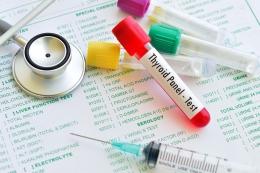Can Pets Have Thyroid Issues As Well?
Introduction
When it comes to thyroid disease, many think that this is just a problem for humans, but this can also happen in dogs and cats, too.
Even though thyroid issues can be treated in dogs and cats, it can still be a challenging thing to take in. That is why, by reading this article, you will be able to have a better understanding with what goes on when your animal has a thyroid issue.
Usually a skinny cat and a fat dog spell trouble with the thyroid gland. An animal’s metabolism is not working like it once did, and it is causing issues with your domesticated animal. But, do not worry; there is still a lot of hope for your fury friend.
Facts About the Thyroid
It is really important to understand what the thyroid’s job actually is. Located in the neck of your animal, it produces a substance called hormone thyroxine or T4.
Other hormones are also created by the thyroid, and the hormones are the main reason food is metabolized in an animal’s body. This way, an animal can get its energy from food and the rest of the body’s functions can work naturally. When the thyroid is not working properly, the body can’t digest properly, and the animal will start to have problems.
Hypothyroidism
The problem with hypothyroidism in animals is that the thyroid does not do its job appropriately.
The thyroid does not release enough hormones, and in the process, the metabolism of a dog, cat, etc. begins to slow down. Hypothyroidism is actually most common in dogs compared to cats, lizards, snake, and birds that live in a household setting. However, even though this is the case with dogs, this can happen in other animals, too. Fortunately, medication can definitely help with this problem in the long run.
Causes of Hypothyroidism
Hypothyroidism primarily occurs, in almost 100% of cases, when the thyroid gland is completely destroyed in the body.
This usually happens when problems like idiopathic atrophy and lymphocytic thyroiditis happen within the thyroid gland. Idiopathic atrophy is when a disease occurs on its own.
Usually, there is no cause that medical professionals can find as to why problems are happening in an animal’s body. In turn, this means a lot of testing must be done to get to the root of the problem.
On the other hand, lymphocytic thyroiditis occurs, primarily in female beings, during the period of postpartum. When this happens, hyperthyroidism occurs first and then it transfers into hypothyroidism.
This is when medication can be implemented to block the beta particles sending poor messages to limit metabolism. In worst case scenarios, hypothyroidism can cause congenital issues, like heart defects, infections, and tube defects, as well as cancer in a domesticated animal.
Seeking Out Symptoms
If an animal has hypothyroidism, there are quite a few symptoms to look out for. First off, an animal’s organs can be effected negatively.
Many difficulties can arise, but most will see that the an animal’s metabolism will slow down. Other symptoms of hypothyroidism include obesity, trouble with cold weather, changes in skin and/or hair color, reproductive problems, and much more.
Depending on the breed of your animal, some will have a higher risk for hypothyroidism. Dogs, for example, above 50 pounds have a higher risk of developing hypothyroidism compared to smaller dogs.
However, some breeds with the highest chance of hypothyroidism include Irish Setters, Dachshunds, Golden Retrievers, and Cocker Spaniels, among others. When it comes to cats, breeds like Siamese, Tonkinese, and Burmese are most susceptible to hypothyroidism.
How to Know for Sure
If you are concerned that your animal may be showing the signs of hypothyroidism, you should get your animal diagnosed. However, animals’ owners should come into the process knowing a few things.
First off, the Merck Manual, which is a accredited veterinarian manual, speaks to the fact that hypothyroidism is over-diagnosed across the world today. This is the case because there are many issues that happen in pets that look a lot like hypothyroidism.
In many cases, thyroid medication can do the trick to get your animal back on track, but the problem still may not be solved. At this case, the veterinarian will only be treating the symptoms, and not the main cause.
During the diagnosis process, testing should be done, as well as veterinarians looking for critical signs of hypothyroidism. Some of the testing and signs can be checked through a standard blood test.
This way, thyroid levels can be inspected, and abnormalities can be brought to the surface. Another test that many veterinarians use involves focus on T4. This is a great place to continue testing, but there are many options moving forward that pet owners should take into consideration, if hypothyroidism has not been pinned down.
Treatment for Hypothyroidism
As stated earlier, hypothyroidism can be treated in pets. One of the most common prescriptions used is thyroxine. This is a replacement for hormones that are made in the thyroid. With the thyroid not working properly, thyroxine gets the job done right.
Of course, the medication prescribed all depends on how much an animal weights and how bad the thyroid levels actually are. Over the years, a veterinarian will probably up the dosage, as the thyroid becomes less and less active in helping with the creation of hormones. Results are usually seen within a few months. However, from year to year, your pet will need to be tested to see if the dosage is still doing its job or not.
Lastly, thyroid medication is something that an animal will need to have for the rest of its life, so do not think that this thyroid issue will completely go away.
More natural methods are also available to animal lovers, too. Veterinarians may prescribe a healthy dose of soy, brocooli, and kale into an animal’s diet. This will help lower iodine levels and increase thyroid functioning. You may even see an immediate change with this kind of treatment.
Other Hypothyroidism Diseases
There are even more specific hypothyroidism diseases that can occur in pets. Autoimmune thyroiditis happens when the thyroid gland gets attacked by the immune system. This commonly occurs in dog breeds like Beagles, Doberman Pinschers, Akitas, and many other types.
For cats, breeds are not connected with having a deficiency involving autoimmune thyroiditis. When autoimmune thyroiditis occurs, it can have the same effects as hypothyroidism, as well of symptoms from disorders like panendocrinopathy and systemic lupus erythematosus. Panendocrinopathy is a condition where the organs in the body start to breakdown because the body starts to attack itself. Also, issues can be seen more clearly with infections to the skin and the nails.
Systemic lupus erythematosus is also an autoimmune deficiency when the body attacks more healthy tissue like joints, kidneys, the brain, and other important pieces of the body.
Hyperthyroidism: The Other Side of the Coin
When it comes to thyroid troubles in a pet, hyperthyroidism may be to blame, too. Hyperthyroidism takes place when a domesticated animal’s thyroid produces too many hormones. This can bring the metabolic rate of an animal to treacherous levels.
In this case, cats actually have the higher risk for hyperthyroidism, but dogs can be affected, too. When it does affect dogs, owners should treat this with the utmost seriousness because cancer can form from hyperthyroidism.
A common type of cancer, in dogs that have hyperthyroidism, is thyroid carcinoma. This a cancer on the thyroid gland that may not even cause any discomfort to a dog in the beginning. However, as the cancer persists, the lymph nodes will become swollen, a dog may have a harder time breathing, and they might even have trouble swallowing water, food, and/or pills.
There are a few options that can rid cancer from an animal’s body. Depending on the cancer stage, tumor size, and surround tissue nearby, a veterinarian can make a educated decision on what to do next. Treatments include radiation or chemotherapy. Also, medications can be used to renew the thyroid back to its typical form.
Hyperthyroidism Symptoms
When an animal has hyperthyroidism, an owner may see a few or many of these symptoms: loss of weight, vomiting, diarrhea, excess stool volume, heart failure, and shortness of breath to name a few.
Sadly, if an animal is diagnosed with thyroid carcinoma and hyperthyroidism, successful recoveries and remission are extreme rare. Even so, talk with a veterinarian to get the factual news and prognosis.
Identifying Goiters
The last thyroid issue that animals may have is goiters. This is when a thyroid enlarges, but it is benign. Traditionally, goiters impact birds and domesticated animals. An iodine deficiency occurs when an animal eats substances that are goitrogenic.
This means that these foods effect the thyroid gland negatively because there is too much iodine in an animal’s diet. The more goitrogenic substances consumed, the more the thyroid will be impacted unfavorably. Fortunately, a animal’s diet can be painted with a commercialized diet by food conglomerates.
Traditionally, goiters come in the form of a genetic abnormality in animals i, or it is a side effect of using antibiotics earlier in life to counteract infections. Also, goiters can arise as a congenital hypothyroidism problem in dogs like Toy Fox Terriers. Even though goiters may seem alarming at first, do not over react.
It is serious to take your animal in to get checked on, but do not jump to any conclusions before you have all the answers.
Final Thoughts
If you ever have any concern for your pet, contact a trained professional to get their advice before you move forward. Do not self-prescribe or diagnose your animal if you are not a professional yourself. You many hurt your best friend in the process. Give them the right treatment they deserve.
Overall, when diagnosed early, your pet will be in good shape moving forward, so look for the signs and do not hesitate to contact your veterinarian. This way, you will keep your pet around for years to come. Great memories and enjoyment will be had because you took the time to care for your pet the right way.













































































Leave a comment